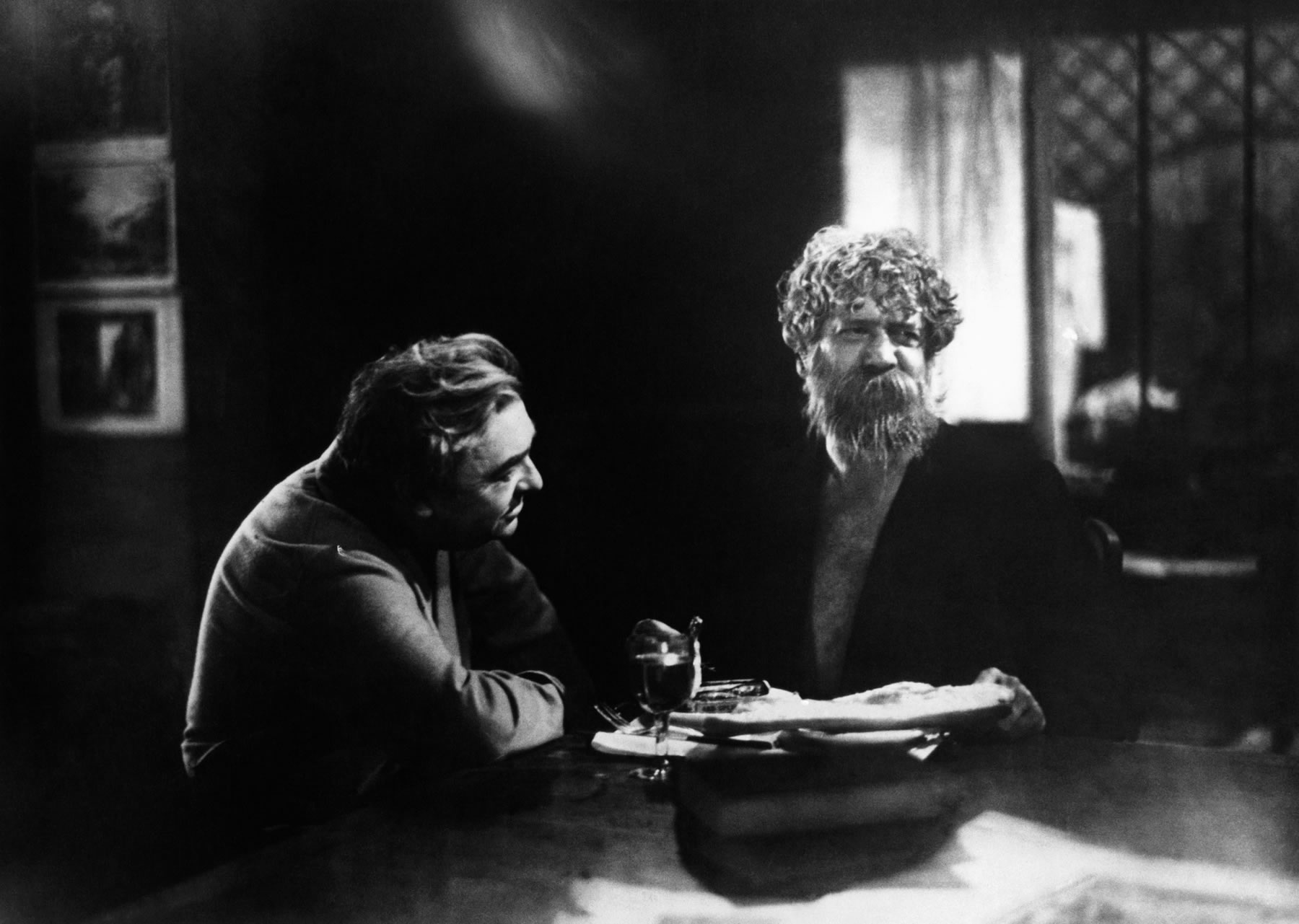Open to Life
We talk about directors who are open, either to the spontaneity of their actors (Robert Altman) or to chance events (David Lynch). No director has been as open as Jean Renoir. Boudu Saved from Drowning (1932) is not only an early sound film for Renoir, it’s an early sound film for the French cinema. Like Rene Clair, Renoir freely experiments with various sound and camera techniques. Yet Renoir’s experimentations are always firmly grounded in the story and characters.
Boudu is the story of a tramp who wants to end his life because he can’t find the dog who has befriended him. Most critics have viewed the film as an indictment of petty bourgeois behavior, but Renoir’s approach isn’t so simple. He also pokes fun at the well-intentioned left, who want to help the unprivileged — as long as they’re kept at a distance. Michel Simon turns in a masterful comic performance as Boudu. He’s simultaneously lovable and irritating, and true to form, Renoir remains impartial. Renoir’s world is large enough to encompass the good and bad aspects of contradictory sides — left versus right, instinct versus convention, self consciousness versus naiveté, and civilization versus nature.
Truffaut and the other New Wave directors were heavily influenced by Renoir’s relaxed and inventive style (Renoir was Truffaut’s favorite filmmaker). They also adopted his realistic approach to filming, which Renoir had picked up from silent director Erich von Stroheim. (Renoir’s films, particularly Toni, also strongly influenced the Italian Neo-Realists.) Not surprisingly, the New Wave was more excited by Renoir’s early free spirited films, such as Boudu and The Crime of Monsieur Lange, than by his later masterpieces, Grand Illusion and The Rules of the Game.
With Renoir and the early New Wave directors, it’s easy to fall into the trap of confusing an easy and liberated style with technical incompetence. André Bazin writes in his book, Jean Renoir:
One of the best scenes in Boudu Saved from Drowning, the suicide attempt from the Pont des Arts, was made in total defiance of the logic of the scene. The crowd of unpaid extras gathered on the bridge and the river banks was not there to witness a tragedy. They came to watch a movie being made, and they were in good humor. Far from asking them to feign the emotion which verisimilitude would demand, Renoir seems to have encouraged them in their light-hearted curiosity. . . For Renoir, what is important is not the dramatic value of a scene. Drama, action — in the theatrical or novelistic sense of the terms — are for him only pretexts for the essential, and the essential is everywhere in what is visible, everywhere in the very substance of the cinema.
By all means, see Grand Illusion and The Rules of the Game, which are truly two of the greatest films ever made. But don’t deny yourself the pleasure of watching Boudu Saved from Drowning.
Boudu Saved from Drowning
(1932; directed by Jean Renoir)
The Criterion Collection (DVD)
Monday, November 11 at 4:15 a.m. eastern (late Sun. night) on Turner Classic Movies
Reviews